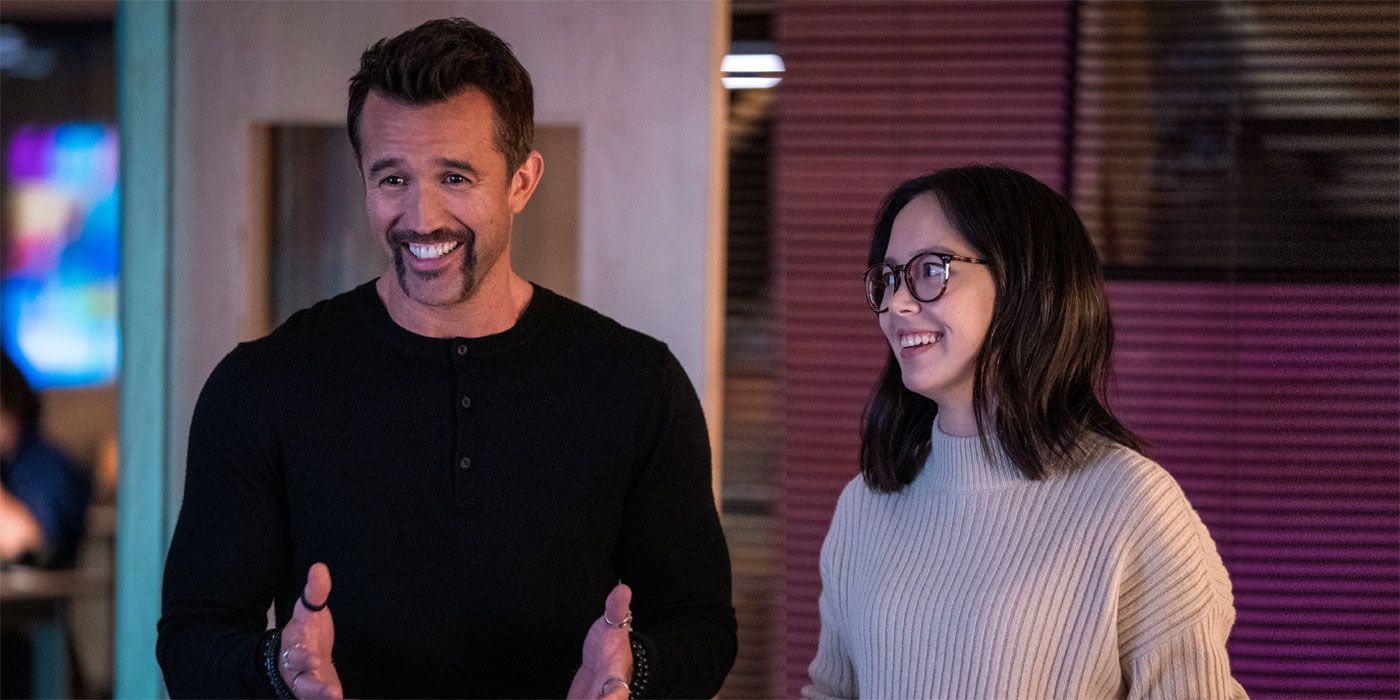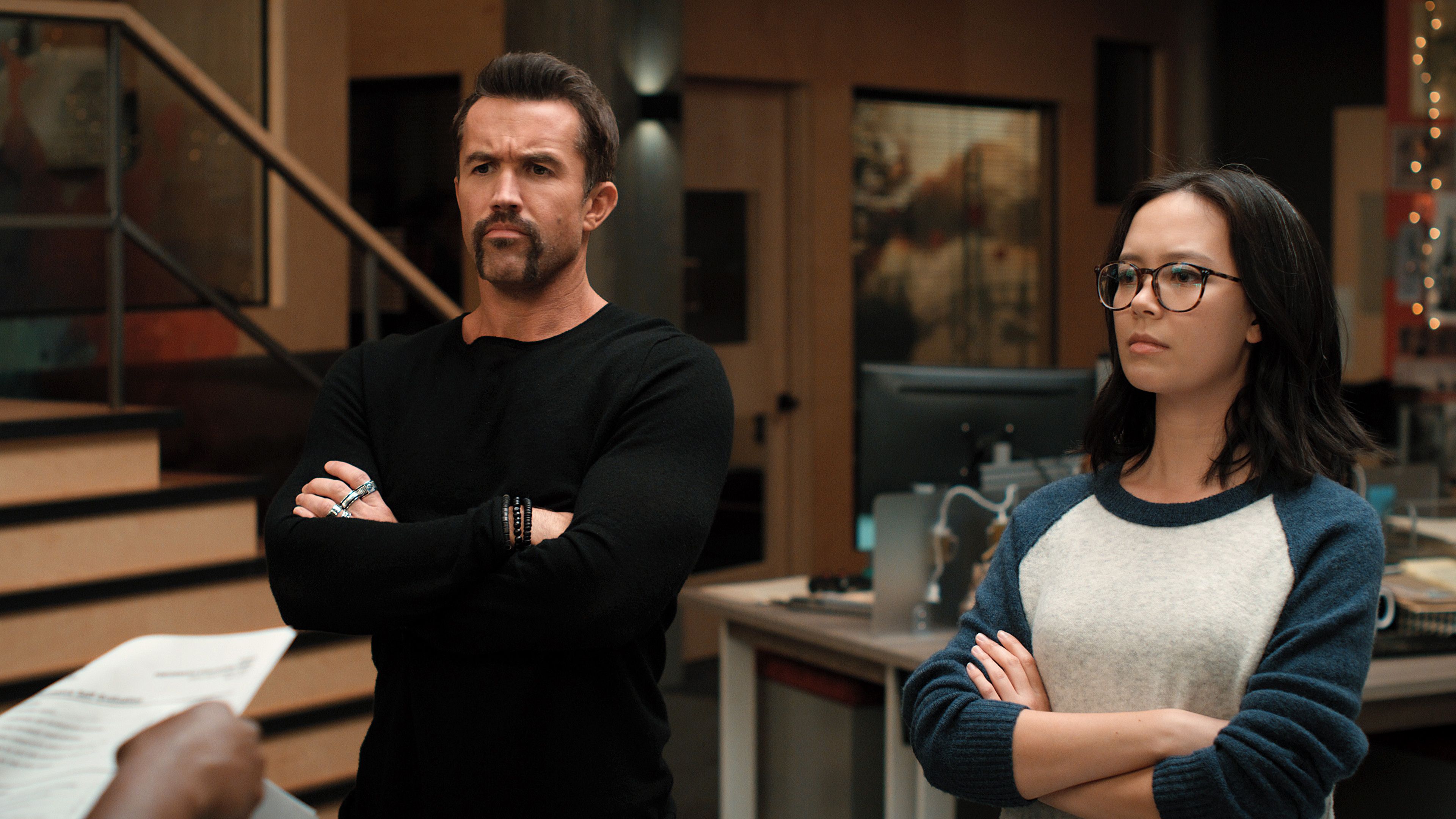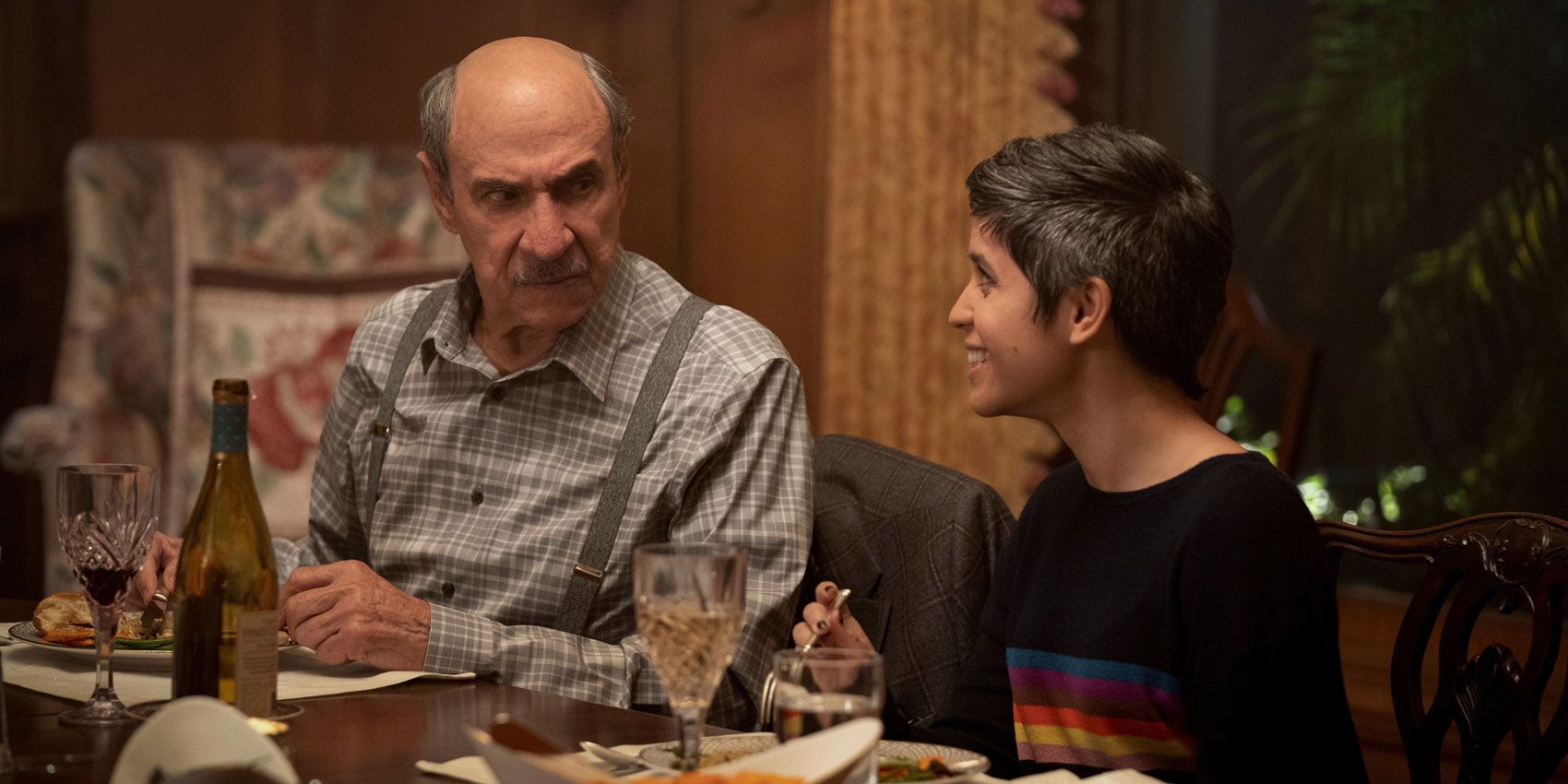[Editor's note: The following contains spoilers through the Season 2 finale of Mythic Quest.]
The second season of Mythic Quest ended with a pretty shocking finale that split up the sometimes happy, always chaotic staff of the titular gaming company, with some characters leaving the company to pursue new passions or (in one case) serve jail time, leaving others behind. But perhaps the biggest twist was creative directors Ian (co-creator Rob McElhenney) and Poppy (Charlotte Nicdao) quitting their jobs to work together on a brand new game based on a concept created by Poppy.
It's a creative choice that makes sense when you consider how the show, both off-screen and on-screen, is deeply invested in exploring what it means to work in a creative field, as well as what it's like to work in a modern-day office, with all the concerns that come along with that. During a recent press junket, Collider spoke with McElhenney and Nicdao about how Mythic Quest aimed to become something special from the beginning, the importance of taking risks on breakout episodes like this season's heartbreaking "Backstory" and the William Hurt-starring "Peter," and why this season ended with such big changes for all the characters.
Collider: When Mythic Quest was first announced, it was announced as a workplace comedy about video games, and it's easy to draw certain assumptions from there. But what the first season proved and the second season continues to prove is that it goes far deeper than you might expect. Rob, from your perspective, at what point did you have that feeling that you were making something that was going to hit these levels?
ROB MCELHENNEY: It was certainly our intention from the very beginning. We recognized that there was going to be a certain perspective on what we were doing just on its face. And we wanted to subvert some of those expectations. I'd never seen a show or a movie that took place in the world of gaming that treated it with respect and reverence, but then also recognized that it's problematic and complicated, just like every industry on the planet. And so we wanted to make sure we were making a film first and foremost about human beings who work together. And it just so happens they work in the gaming industry and we wanted it to feel authentic to the gaming industry. And if you were a gamer or worked in that world, that it felt authentic. And yet if you had never played a game in your entire life, you could jump right in and you could recognize the people you were seeing.
Charlotte, did your perception of the show change from the beginning?
CHARLOTTE NICDAO: There are two different things I think that changed in my perspective. The first one is that when we first started filming, I was like, Oh my gosh, I don't know anything about the gaming world. I need to do a bunch of research. I need to like really know what I'm talking about here, which was definitely not a bad thing, 'cause it was the most fun research that I've ever done, researching gaming. But then I think that as we started shooting, I realized that it is a workplace comedy. It's not the kind of show that if you don't know much about games, you won't get. Because I didn't know much about games when I came in, and I found every single script really funny and really relatable.
I think that the other part of it is, and I think we really explore this in Season 2, is it does kind of go beyond the formula of day-to-day workplace comedy. It does reach these really incredible heights. And I feel like the thing that's fun about it is you get the comfort that you get from these comedies that are about, just people getting along or not getting along. And then every so often we'll hit you with an episode that you're like, wait, what was that? What just happened? Which makes it, I think a really exciting show to watch.
Absolutely. And for lack of a better term, it also feels like one of the first post-#MeToo shows to really take on the question of how a properly functioning workplace should operate, and how that's not always the way that workplaces operate. What's it been like engaging very directly with that topic?
MCELHENNEY: Yes. It's been something that's really important to us and [co-creator and executive producer Megan Ganz]. We've made a concerted effort to address that both onscreen and off. So we spent a lot of time talking about navigating the actual production — the pre-production, the writers' room, then the actual production and then post-production. We are running a company about a company and we're addressing those issues in real life and in real time, and then projecting them into the show. Except the difference is that we're trying to do it the right way, offscreen, and then onscreen, every once in a while we need to navigate into the wrong way, because that's where the conflict arises. In very specific circumstances, that's where the comedy can come, and also the drama.
Charlotte, I heard that you and some of the other female cast members got brought into the writer's room and elsewhere?
NICDAO: Yeah. Rob and Megan both have been so incredible and welcoming with all of us, with allowing us to sort of peek behind the curtain at processes that actors don't always get to see. It's exciting to get to see that stuff from the perspective of being like, oh, okay, well, that's how that worked. But also just from the perspective of being an actor and if you get to sometimes go to post-production and see stuff being edited suddenly you like, oh, so if I do it like this that's useful. And if I do it like this, I should maybe more thinking about it like that. And so I've been really grateful to both Rob and Megan for giving us those opportunities.
This season, there was another breakout episode covering the backstory of C.W. Longbottom. Rob, what was the thought process behind having that one big C.W. episode, and then following it up with the William Hurt episode?
MCELHENNEY: Yeah. We just like experimenting and we recognize that when you do that, you run the risk of failing. But if you're not failing, then you're not stretching and you're not trying new things. So we thought, well, we had a really successful episode last year, that was a departure from our normal forum. That seemed to go pretty well. People responded really well to it. Let's do another one, except maybe this time instead of going outside the characters, maybe let's find one of our already established characters and tell and get a little bit more into their backstory. And so we did, and as we were breaking that episode, we realized it was working and it was really fun and interesting to explore that aspect of CW's young life. But there would have to be some kind of repercussions and that we would have to see if we set it up in this one episode, how do we pay it off?
And that's why we did that second episode, which is also very different. It's certainly not a flashback, but it's outside of the office, it's introducing a brand new character, or at least a brand new actor into the vault and telling the story almost like a play. So coupling that, with say the episode that my sister, Katie McElhenney wrote and Megan directed, which is a bottle episode, and with "Everlight," and we have a very eclectic kind of television series that yet we feel like maybe addresses all sorts of different genres, but the characters remain true and relatable. And that's been the goal from day one.
To wrap up, I definitely want to ask about the season finale and it's a big shift in the status quo for both of your characters. What is it that excited you about taking that swing?
NICDAO: Yeah. I mean, I remember reading that in the script and being like, "Wait, what?" But I feel like it's kind of in line with what the show has been so far, which is this thing where it's not afraid to keep reinventing itself, as Rob said, to take risks and stretch. Personally, I'm really excited to see how that dynamic changes and how the show follows these two very flawed characters into this totally new adventure.
MCELHENNEY: Yeah. That was the intention. The number one thing you don't want to do at the end of a successful season of television is blow the show up. And so we thought, well, then I guess we're going to have to blow the show up. If we want to keep trying to stretch and keep trying to do something new and fresh, then we have to actually take massive risks. And the biggest risk that we could find there at the end, was to essentially end the show as we know it and see where it takes us.
That being said, is there a Season 3 percolating in your brains?
MCELHENNEY: No, not yet. That's only because I have to go do the other show. And I learned from years and years of like, when you're acting, you show up at a certain time and then when you're done, you leave. But the problem is with writing is that you're never free from it. It's always in your head when you're walking around, when you go to the grocery store, you're walking the dogs. It's always there, unless you can compartmentalize and stop those thoughts. So I learned a very long time ago, which is I do not start thinking about whatever I'm working on until the first day of the writer's room.
Mythic Quest is streaming now on Apple TV+.



